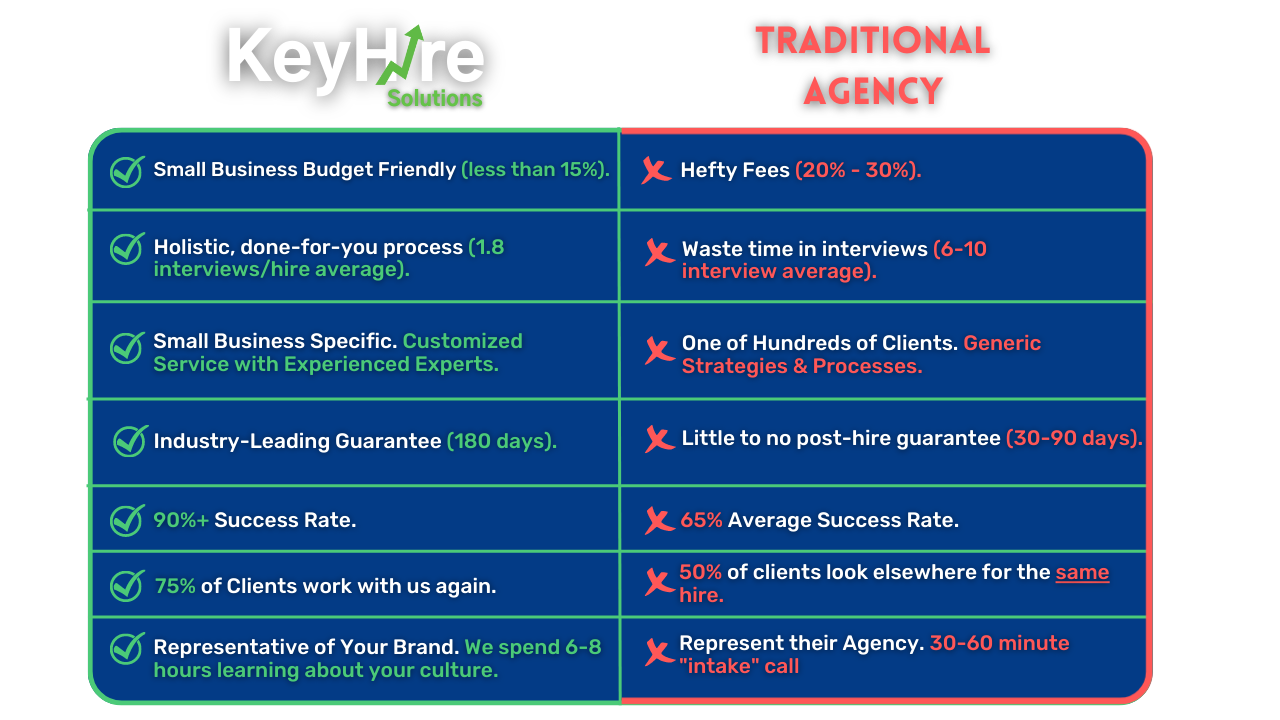By Corey Harlock
•
September 4, 2025
Recruiting has never been easy for small business owners—but in today’s job market, it’s tougher than ever. With more jobs than people, candidates now have choices. And those choices aren’t just about salary or benefits. They’re shaped by two critical factors that too many business owners overlook: candidate experience and employer branding . I’ve talked about these topics a lot on the podcast, and sometimes it feels like I’m a broken record. But the reality is, if you don’t get serious about how candidates experience your hiring process—and about what people say about your company when they work for you and after they leave—you will continue to struggle to attract and keep the right people. In this blog, I want to break down why candidate experience and employer branding matter, how they directly affect your business results, and what you can do to improve both. What Is Candidate Experience? Candidate experience is the overall impression people have of your interview and hiring process. Years ago, companies held all the power: Employers dictated the interview schedule. Candidates were expected to drop everything. The mindset was: Tell me why I should hire you. That world is gone. Candidates now have options, and their experience during the hiring process matters. A good candidate experience means being on time, communicating clearly, respecting people’s time, and not making them jump through unnecessary hoops. The best hiring processes are both exhaustive and efficient . Yes, you need to properly evaluate candidates—but you also need to move quickly and respect their time. What Is Employer Branding? Employer branding is what people say about your company while they work there and after they leave. It’s the stories your employees (and ex-employees) tell about your culture, leadership, and values. Think about how you handle it when a great employee leaves. If you treat them with respect, thank them, and stay in touch, there’s a good chance they’ll speak highly of you—and maybe even come back one day as a “boomerang employee.” But if you react poorly, you don’t just lose that person. You damage your reputation with everyone else who hears their story. Your reputation is your best recruiting tool. Ignore it at your own risk. Why It Matters: The Numbers Don’t Lie The impact of candidate experience and employer branding isn’t theoretical. The data is clear: 88% of candidates are more likely to buy from a company after a positive hiring experience—even if they didn’t get the job. Imagine someone applying to McDonald’s, getting turned down, but still choosing to eat there more often because they were treated respectfully in the process. 55% of candidates share their hiring experience with their network. That means over half the people you interview will tell others whether your company is first-class—or a nightmare. On the flip side, a poor candidate experience can damage both your recruiting efforts and your customer relationships. People are quick to share bad stories, and once your reputation is online, it sticks. At KeyHire, we remind clients all the time: candidates are not single-use products. Just because someone isn’t right for you today doesn’t mean they won’t be perfect tomorrow. Burning bridges with bad experiences will only shrink your talent pool. Speed & Transparency: Non-Negotiables Top candidates are only available for 10 days on average before they’re hired. That means the clock is ticking the moment a resume hits your inbox. If you’re interested in someone, chances are at least one other company is too. And in a market where there are five jobs for every three candidates, you don’t have the luxury of dragging your feet. Transparency matters as well. Candidates today are doing their homework on you. In fact, 55% abandon applications after reading poor reviews online. Sites like Glassdoor and Indeed carry enormous weight—especially with younger candidates who rely on peer reviews to make decisions. Even if the reviews are outdated or unfair, they still influence perception. Which means you need to be intentional about both your internal culture and your external reputation. Rethinking the Application Process Let’s talk about online applications. If you make candidates jump through endless hoops, you’re pushing away the best talent. The old-school thinking is, If they really want the job, they’ll fill out the long form. But in reality, the people willing to do that are usually the ones with fewer options. A strong candidate who already has a job—and multiple interviews lined up—will abandon a time-consuming or repetitive application. Why would they spend hours re-entering the same information they already provided in their resume? If you must use applications, streamline them. Make sure you’re not duplicating information. And if you need extra details, ask for just the essentials. Respect candidates’ time. Employer Branding: Authenticity Wins Here’s a truth I repeat often: whatever your culture is, it’s perfect for someone. The worst mistake you can make is pretending to be something you’re not. If your culture is highly competitive, say so. If you’re mission-driven and community-focused, lead with that. If you’re a faith-based organization, be upfront. Candidates today are looking for alignment between their values and their employer’s. By 2025, this trend will only grow stronger. People want companies with a clear purpose beyond profit. And they trust the authentic voices of employees far more than polished corporate statements. That doesn’t mean you need to have a perfect culture. In fact, if you’re actively working to improve your culture, say that. Be honest about where you’re at and where you’re going. The right people will respect the transparency—and some will want to join precisely to help you move forward. The Lifecycle of Experience When you think about candidate experience and employer branding, it’s helpful to see it as a lifecycle: Attraction: Your reputation and brand either draw people in or push them away. Application & Interview: Candidates form lasting impressions about your professionalism, speed, and transparency. Employment: Your culture and leadership shape the stories people will eventually tell about your company. Departure: How you treat people on the way out determines whether they become advocates—or critics. Imagine two scenarios: An employee leaves, and you part ways respectfully. They later post a review saying, “I loved working there. I had a great manager, and I only left for a life-changing opportunity.” That review attracts great future candidates. Or, the same employee leaves, and you treat them poorly. They post, “Toxic environment. Management didn’t care about us.” That review repels talent. Both situations were avoidable. The difference was how you handled the exit. The Competitive Edge for Small Businesses The reality is that small businesses can’t always compete on salary or benefits. But where you can win is in the quality of the candidate experience and the authenticity of your employer brand . If you: Move quickly and communicate clearly, Respect candidates’ time, Showcase your real culture unapologetically, and Treat departing employees with respect, …you’ll stand out in a crowded market. Remember, for every five jobs, there are only three candidates. The companies that will win aren’t the ones with the biggest budgets. They’re the ones with the best reputation for how they treat people—before, during, and after employment. Final Thoughts Recruiting isn’t going to get easier anytime soon. It’s competitive, and candidates have more power than ever before. But if you shift your mindset and get serious about candidate experience and employer branding, you’ll improve your odds dramatically. At the end of the day, people want to work for companies that respect them, move efficiently, and stand for something real. Build that kind of company, and recruiting won’t feel like an uphill battle—it’ll feel like an opportunity. Listen & Subscribe: Podcast: https://www.keyhire.solutions/the-keyhire-podcast--new YouTube: https://www.youtube.com/@keyhiresolutions Connect with us: https://www.keyhire.solutions













